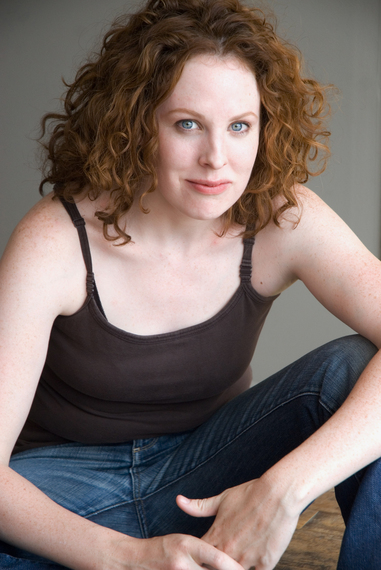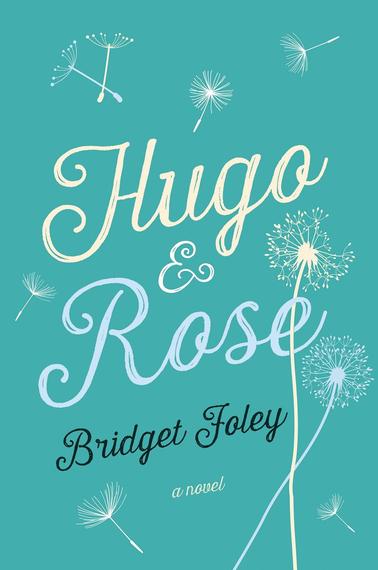Bridget Foley is the author of the debut novel, Hugo & Rose, a story where a woman's life long dreams intersects painfully with her everyday life. I spoke with Foley about honesty, dreams, and motherhood.
Before we get started, what germinated the idea behind Hugo & Rose?
I had a dream. I was with a man in an enclosed space. We were laughing and talking. I could tell we had a deep friendship. A history together. Dreaming of him was more like dreaming about someone I knew, my mother or an old friend than some just amalgamated 'dream person.'
Over breakfast with my husband and son, I couldn't get him out of my mind. He had seemed so real. The whole concept of the "dream man" is such a funny trope. Meeting the man of your dreams... but there are good and bad times in your life for that to happen. Sitting at the breakfast table with my family, so happy with my life, I wondered what would happen if I met the man in my dreams. "Nothing good" was pretty much what I thought... which is clear to readers in how Hugo & Rose takes what seems like a romantic premise and twists it into a tale of dark obsession.
Magical realism often serves as a mirror in fiction to reflect back and illuminate the real. What do the magical elements of Hugo & Rose reveal about Rose and her real world?
Every element of the island, from the spiders to the bucks to Blindhead does have a real world corollary, but much of that is revealed in the final pages, so I don't want to spoil it for people who haven't read it yet.
But it's funny that you mention "magic" because when you write a book about dreams suddenly people start talking to you about their dreams. It's actually kind of wonderful.
First of all, I just flat out need to say that we forget just how weird sleep is. Obviously, since every animal does it we don't wonder about it but we should! Imagine explaining sleep to an extraterrestrial that had no concept of it. That for one third of our day, we lay down in the dark, close our eyes and do nothing for 5 to 8 hours.
And then we have to explain to this extraterrestrial that for roughly half of that time our brains unspool these crazy mind movies that most of us don't even remember. How can you not be filled with wonder at that? I feel dreams are a way of depositing magic into our ordinary lives. So much of Hugo & Rose sprouts from my own questions as to the purpose of all that forgotten REM.
Hugo & Rose paints a shockingly honest portrait of motherhood. At one point, your protagonist Rose reflects: "Rose felt that old disappointment flare up. This woman didn't know her name. Her name was irrelevant. She wasn't Rose here. She was Penny's mommy." Did you have any concerns over voicing such a piercing rebuke of motherhood?
It's very polarizing to be completely honest about the experience of motherhood. It's not all sunshine and rainbows and anyone who tells you that it is either trying to sell you something or sell something to themselves. I didn't write a book for the kind of people who want the propaganda-- that all women are naturally happy as mothers, that all babies live and thrive and return the love you give to them, that the sacrifices parents make are easy. There are plenty of books for people who want to buy into the motherhood fantasy, but Hugo & Rose just isn't one of them.
There are two statistics that I love to drop whenever I talk about modern parenthood. The first is that today's average working mother spends MORE time with her children than the average a stay-at-home mother did in the 70's. The other is that according to health surveys, women are drinking more now than any other time in recent history. Get in a group of mothers and you will hear jokes about "Mommy juice" and "Drinking clubs with book problem." I'm not a social scientist, but is it possible that these two statistics are correlated? Why does mommy need a drink so badly? Could it have something to do with the fact that there is an expectation for women to sublimate their own needs to those of their children?
We are having a cultural moment in which the people having the most interesting conversations about parenthood are the childless. I read Megan Daum's fantastic collection "Selfish, Shallow & Self-Absorbed" with a pencil in my hand so I could write my responses in the margins. It was like I was preparing for a rebuttal, an argument for procreation. Conceding some points, disproving others.
But what the conversation about parenthood is missing (from both sides) is ambivalence. It shouldn't be radicalized into "parenting is awesome," or "parenting sucks" because honestly parenting is both. The most profound moments in my life have been delivered to my door because I have been a parent...but also the most heartbreaking ones.
As a writer, and as a reader, I think the best stories are the ones that come from the sticky middle of ambivalence. You can both love your children and resent the role they compel you to play. In fact only a few paragraphs after the part quoted above, Rose has these thoughts:
Her complaints were the disappointments of the good life. The small resentments and minor losses that are worth enduring for the sake of the greater whole. It was wrong of her to think that any life could be lived without them. They were pebbles in a well-fitted shoe. Inevitable and endurable.
What do you think it says that Rose can't have both her dream life and her real life? Do you think people have to choose?
Well, she does have both for most of her life doesn't she? It's only when she meets Hugo in real life and they start to search for the "why" of their connection that both their real and fantasy worlds begin crumbling. And what they discover is that their connection is preventing them from living a complete life.
In Hugo & Rose, I was particularly interested in exploring the way humans deal with trauma. Without giving the end away, I can say that both Rose and Hugo suffered a trauma that their shared dreams helped them survive...but when the dreams did not evolve, it actually handicapped their growth. This best metaphor for this is using crutches for a sprained ankle--it is helpful while you are injured, but if you continue to use then after you have healed, your body will atrophy.
So in a way, yes, you do have to choose but it should be natural. Your dreams, in all senses of the word, should change as should you. Something isn't working properly, if you want to be living the same life at 40 as you were at 20. Rose senses this when she complains that the island, and its adventures seem juvenile... it's unusual that the dream life of a woman in her thirties is one that is so appealing to her seven and eight year old sons. It is an indication that something has gone awry.
You've been very open about the death of your infant daughter. How has dealing with loss and trauma changed you as a writer, as a person and as a mother?
My daughter, Giddy, died three days before Hugo & Rose found a publisher. My entire journey as a published author has also been that of a grieving parent. People are uncomfortable with infant deaths because they fall so out of the natural order of things. Because of this there is so much unnecessary shame and silence on the part of the grieving parents. I have been stunned by how many people have reached out and said, "me too." Not just people I've just met, but people I've known for years. Grief is lonely, but it is made even more so by the silence of people who share similar grief.
The U.S. stillbirth rate is 1/160. SIDS used to take 1.5/1000, and but today, even with all the measures that have been taken it still claims more than 2,000 babies per year. While those statistics are the most frightening to new and expecting parents, what those numbers mean to everyone is that you probably already know someone who has lost a child. It may be your mother's best friend, your post office clerk or your neighbor. If by being open about my daughter's death I can make one grieving parent feel less lonely during the worst moments of their lives then I am willing to do it. Our children's names should not be whispered.
I am getting to know this "new version" of myself following this loss. I do a lot of "this didn't used to be difficult" head-banging against the wall about my writing and parenting... but then I have put whatever I'm struggling with into context. This is me now... After.
I do sense that I care less about the things that used to obsess me before, and this in large part has to do with context. Having my lifelong dream of having a book published come true on the heels of my daughter's death was a cruel lesson in perspective. And while I think it was an important thing for me to learn, I do dearly wish there had been another way for it to be taught.
As I have been working on my next novel, I have found that I am less afraid of the dark corners, which is funny because Hugo & Rose is already a pretty dark book. But then, life has dark corners, and it behooves no one when we deny them.
If you want to connect with Bridget Foley, you can find her on Twitter @wonderfoley or at her website.


